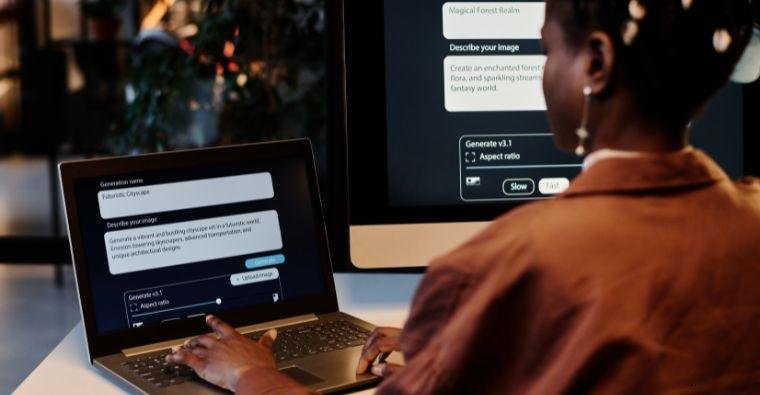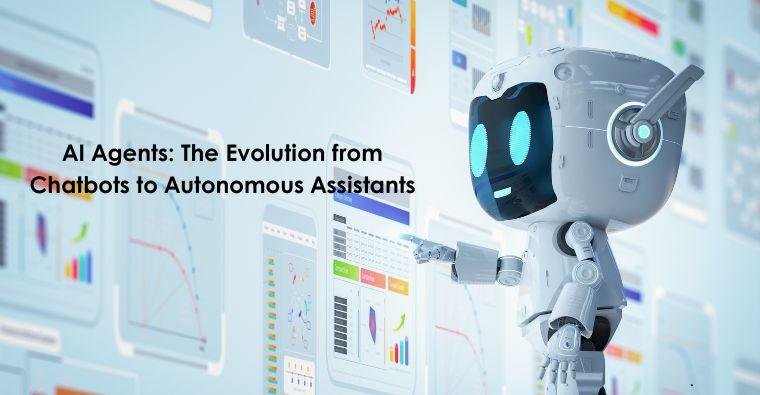Artificial Intelligence (AI) has rapidly advanced in recent years, revolutionizing almost every aspect of our daily lives. One of the most significant areas where AI has had a profound impact is in the world of gadgets. From smartphones to smart home devices, AI is changing the way we interact with technology, making it more intuitive, efficient, and personalized. But how exactly is AI transforming the gadgets we use? Let’s take a deeper look.
1. Smartphones: The AI-powered Assistants
AI has made smartphones smarter and more user-friendly than ever before. With AI, smartphones can now perform tasks that were previously unthinkable. Voice assistants like Siri, Google Assistant, and Alexa use natural language processing (NLP) to understand and respond to commands. AI algorithms help these devices learn from our preferences and habits, making them more intuitive with each interaction.
AI is also improving smartphone cameras by enhancing image quality. AI-based features like scene detection, automatic adjustments, and facial recognition ensure that photos are taken with optimal settings. The ability to edit and enhance images instantly is another example of AI at work.
2. Smart Home Devices: Automating Your Life
AI is at the heart of the modern smart home. Devices like smart thermostats, smart speakers, and smart lighting use AI to learn from your behavior and make adjustments automatically. For example, a smart thermostat can learn your preferred temperature settings and adjust the heat or air conditioning without you lifting a finger.
AI-driven voice assistants control many gadgets within the home. You can ask them to turn on the lights, play your favorite music, or even order groceries. With AI-powered home security systems, you can now have your home continuously monitored by devices that can distinguish between regular movement and suspicious activity, providing added peace of mind.
3. Wearables: AI for Health and Fitness
Wearables, such as fitness trackers and smartwatches, are becoming increasingly AI-driven. AI algorithms in these gadgets track your physical activity, analyze sleep patterns, and even monitor vital health metrics like heart rate and blood pressure. These devices are helping users make healthier choices by providing personalized feedback and recommendations based on collected data.
For example, AI-powered fitness trackers can suggest workout routines tailored to your fitness level and goals, while smartwatches can alert you to irregularities in your heart rate, prompting you to take action. The integration of AI in wearables is essentially transforming them into personal health coaches.
4. AI in Laptops and Computers: Smarter Workspaces
The integration of AI into laptops and desktop computers is revolutionizing the way we work. From improved user interfaces to enhanced productivity tools, AI is making these devices more efficient. For instance, AI-powered software can automatically organize files, sort emails, and even respond to routine tasks without the need for human input.
AI is also improving security in personal computers. Facial recognition or fingerprint scanning powered by AI is making it easier to log in to devices without needing passwords. AI is also optimizing performance, such as adjusting the processing power for different tasks, ensuring that your laptop or computer runs smoothly.
5. AI in Virtual Reality (VR) and Augmented Reality (AR)
Virtual reality (VR) and augmented reality (AR) technologies are being transformed by AI. AI algorithms can track and predict human movements, making virtual environments more immersive and responsive. AI enhances AR experiences by recognizing real-world objects and overlaying relevant digital information on them.
In gaming, AI is used to create dynamic, interactive worlds that respond to the player's actions in real-time, making the experience feel more natural and engaging. AI-powered AR applications, such as those used in retail or interior design, are helping users visualize products or changes to their space before making a decision.
6. AI-powered Virtual Assistants in Gadgets
AI-powered virtual assistants are more integrated than ever into gadgets. From appliances to wearables, AI assistants are transforming the way we interact with everyday items. Whether it’s a fridge that suggests recipes based on available ingredients or a washing machine that adjusts its cycles based on the fabric type, AI is making gadgets smarter.
These assistants use machine learning to personalize interactions, offering suggestions based on your habits and preferences. For example, a smart fridge can remind you to buy milk or suggest meals based on what you already have at home, streamlining daily tasks.
7. AI and Gaming Gadgets: A New Level of Experience
The gaming industry is increasingly integrating AI into consoles, controllers, and other gaming gadgets. AI improves in-game experiences by creating dynamic and responsive non-player characters (NPCs) that learn from the player's actions. This makes gameplay more challenging, realistic, and unpredictable.
AI also enhances graphics rendering in real-time, improving the visual experience without compromising performance. Additionally, AI-driven gaming systems adapt to the player's skill level, creating personalized challenges and enhancing the overall gaming experience.
8. AI in Automotive Gadgets: Making Cars Smarter
Automotive gadgets, from in-car navigation systems to smart dashboards, are becoming more AI-powered. AI in vehicles enables features like voice control, predictive navigation, and automated driving assistance. These gadgets are designed to learn from your driving habits and preferences, helping you navigate more efficiently or providing real-time traffic updates.
Additionally, AI-powered systems in cars can monitor engine performance, alert you to potential mechanical issues, and even make adjustments to ensure optimal fuel efficiency. The integration of AI into automotive gadgets is making driving safer, more comfortable, and more efficient.
The Future of Gadgets
AI is undeniably changing the way we interact with gadgets, making them more intelligent, personalized, and efficient. From smartphones to home automation and automotive systems, AI is enhancing every device we use, improving our daily lives and creating new opportunities for innovation. As AI technology continues to evolve, we can expect even more breakthroughs that will redefine the way we think about and use our gadgets.




